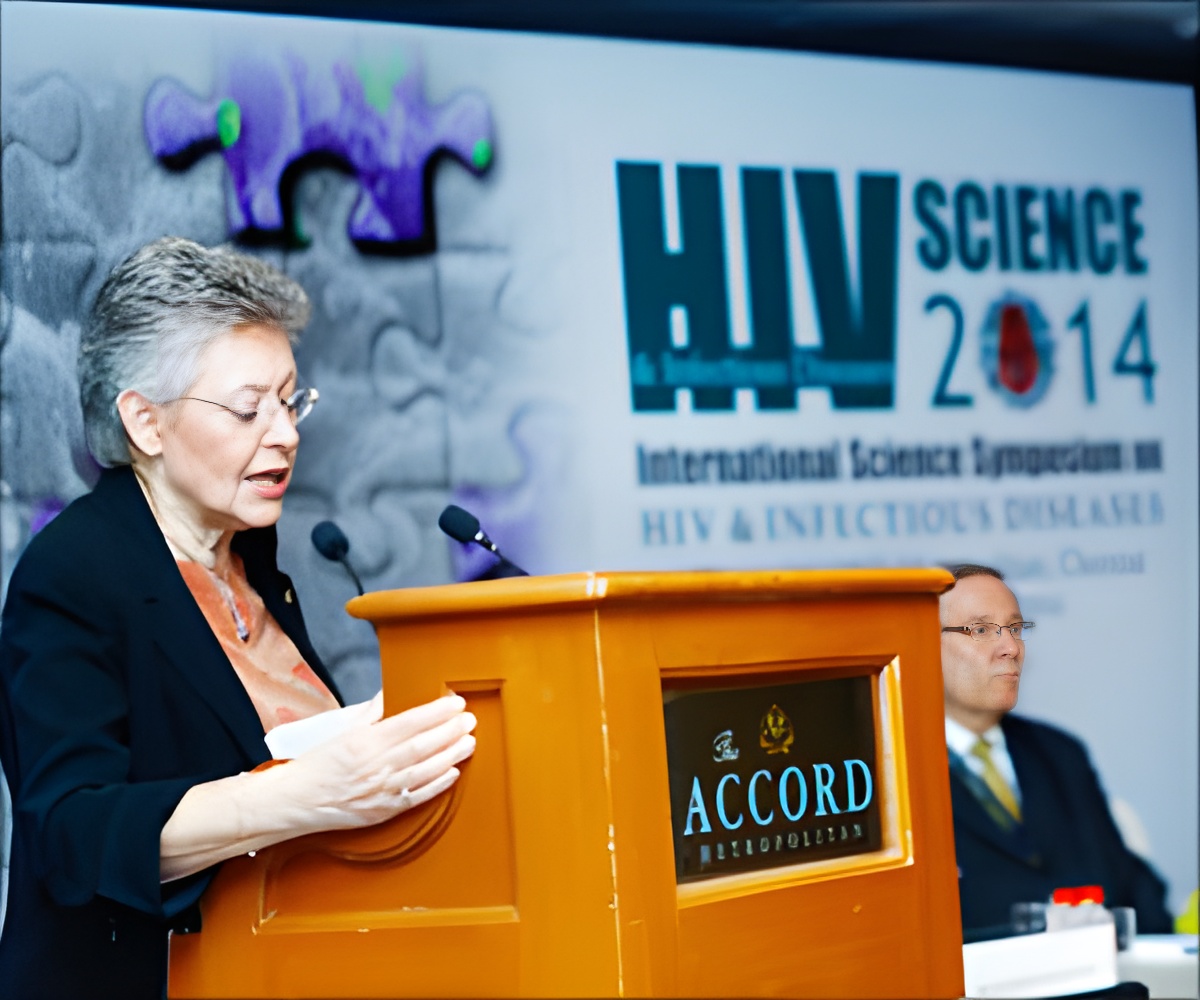From being called gay cancer to its identity now as HIV/AIDS, the journey of HIV from discovery to cure is the main focus of the international science symposium on HIV/AIDS and infectious diseases.

Then began the crucial phase of convincing the scientific community and public authorities that LAV was the etiological agent of AIDS which had to be done on a war footing to identify the disease quickly and prevent its spread. Between 1984 and ’85 collaboration with Sanofi Diagnostics Pasteur for production of viral antigens on site, saw a progression with first generation ELISA test and first generation Western Blot test.
Prof Barré-Sinoussi outlined the challenging task of cloning and sequencing of HIV-1 genome at that time and how the dawn of a new era started with combined ART therapy. Listing the current updates on HIV research and the promises of a functional cure of HIV, the Nobel laureate summed up the 30 years of HIV/AIDS journey as a great example of translational research.
What we need today in the search for a realistic “functional cure” for HIV/AIDS that promises life-long remission after stopping therapy or long term health with ART are novel, creative ideas, multi disciplinary collaboration partnerships between private and public sectors, international coordination and funding. Among the 35.5 million people living with HIV (PLWH) only 9.7 million are on ART therapy and there are an increasing number of patients in need of costly 2nd line and 3rd line regimen.
Dr Jack Whitescarver, Director, Office of AIDS research National Institute of Health USA, gave the audience an insight into the initial challenges that the scientific community faced in the early 1980’s when very young men were diagnosed with Pneumocytis Pneumonia Carinii (PCP), generally found only in people with seriously compromised immune systems. While the disease was yet unidentified it was thought to be the result of some infectious organism or something that went seriously wrong with the immune system. What was more frightening was the ghastly appearance of the patients as if they were starved for months and they were dying for unknown reasons and that was scary.
Highlighting HIV/AIDS research and treatment in India, Dr. Suniti Solomon Founder-director YRG CARE who documented the first evidence of HIV infection in India in 1986, said the legal system in India that labels homosexuality a criminal offence sends the most vulnerable group into hiding, seriously hampering health intervention for HIV/AIDS.
On the brighter side, there is now the ART revolution in India where treatment for HIV is almost immediately available and there is counseling, universal precaution, advocacy, public-private partnerships, slight increase in proper sex education to teenagers and most importantly ethical guidelines in research were firmly established after AIDS was found in India.
The inaugural session was followed by a community training workshop on HIV cure: the basic facts and future direction. Interactions between participants and experts in the field were encouraged through question and answer sessions and a series of panel discussion and scientific paper presentations are scheduled for the next couple of days. Accepted abstracts will be published in the PubMed indexed journal, BMC Infectious Diseases.
The symposium attended by over 500 delegates from around the world is scheduled from 30th January - 1st February, 2014 organized by YRG CARE, India. Though we are now in the era of eradication, a lot of unanswered questions remain, in terms of HIV/AIDS eradication and cure. The symposium invites young researchers to think out of the box and come up with fresh ideas to take HIV/AIDS research to the next level to find a permanent cure and maybe even an eradication of the dreaded HIV/AIDS.
Source-Medindia









